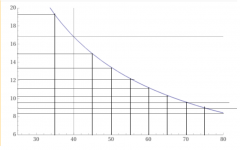Just checking here for some input. I have a 2.5HP single speed Jandy pump right now as my main filter pump. Can I safely assume that, if I replace it (which is my plan) with a VS pump and run it at a lower rpm (say, for example 1750rpm) that when my heater is on, that the water coming out of the heater will be WARMER because the water was passing through it more slowly and therefore had more time to warm up inside the heater?
And can I also assume then, that using a VS pump would also heat my pool faster as a result and also save on my my gas bill/therms? I'm thinking for example that if with a single-speed filter pump water was coming out of the heater at 2 degrees higher than what it went into the heater, that with a VS pump and running more slowly, maybe the water coming out of the heater might come out at 4-5 degrees higher than what it went into the heater? Completely guessing here.
Anyone with knowledge of this?
And can I also assume then, that using a VS pump would also heat my pool faster as a result and also save on my my gas bill/therms? I'm thinking for example that if with a single-speed filter pump water was coming out of the heater at 2 degrees higher than what it went into the heater, that with a VS pump and running more slowly, maybe the water coming out of the heater might come out at 4-5 degrees higher than what it went into the heater? Completely guessing here.
Anyone with knowledge of this?


